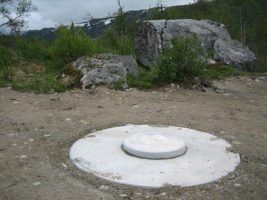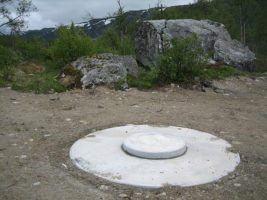

Environment
Tips for greener, leaner septic tanks
Keeping your septic tank in tip top shape is pivotal for reliable long term use and essential for a trouble free system.
A lot of us make the same mistakes with our tanks and suffer from the same sorts of issues, so here are a number of good tips to prevent problems.
Properly Keeping Records
It is important to hold on to copies of all the sites system drawings and plans as well as installed equipment and all service records, these should be stored with the rest of your home appliance documents according to Septic tank company TG Wastewater. They suggest all applicable information should be recorded and receipts for all new parts or spares kept as it can make a big difference if something major goes wrong.
The Use of Laundry and Water
Wash loads should be spread throughout the week. Opt for dryer sheets over liquid fabric softener. Detergents that are biodegradable, low suds and low phosphate should be used.
Fixtures Which Leak
When you have fixtures which leak, a large amount of water is added to your wastewater system. You will maximize your system’s life, particularly the drain field, by detecting and repairing the leaking fixtures in a timely manner.
The Use of Water Softeners
It is more likely that discharge form softeners which are properly working and backwash depending on the use of water aka DIR as opposed to those that are timer operated will be better tolerated, if this is allowed by the local regulatory authority. These discharges however may possibly cause damage to other areas of your septic system.
Food Waste Disposal
If allowed by the local regulatory authority, the disposal of food waste garbage is acceptable. This could however bring about the need for frequent removal of solids from the septic tank. If the food quantities are large, they should be disposed of in the garbage can.
Oils, Fats and Grease
Too much grease which includes vegetable oils, animal fats and lard being sent down the drain could cause an overload of bacteria preventing it from being able to break down the waste fully.
Cleansers and Disinfectants
Chlorine, citric acid as well as any other biodegradable cleansers should be properly used, the manufacturer’s recommendations should be followed. Products which contain quaternary ammonia as well as any cleansers which are pine oil based should not be utilized. Use drain cleaners to unclog pipes as a very last resort.
Workroom and Garage Floor Drains
These floor drains should be diverted away from the septic system. Petroleum based items as well as sawdust and gas should never be put into the system.
Medicines
These should never be flushed down the drain. Treatment quality will be harmed by all antibiotic medicines. Any medications which are unused should be returned to the pharmacy or to the prescribing physician, if necessary thrown them away in the garbage.
Additives and Enzymes for the Septic Tank
All the bacteria required for proper operation is contained in the systems wastewater. It is unnecessary to add additives, these are generally more harmful than they are helpful.
What Are The Best Paper Products
Double or single ply white toilet paper products which are not quilted should be used. There are many color shades that paper contains which will not be eaten by the natural bacteria. It takes longer for brown, aka non bleached paper to break down, this can cause an increase in the frequency of your biosolids pump out. Napkins, paper towels, wipes and any other paper material which is thicker should not be flushed.
It is important to be very careful with the disinfection products as well as cleansers that are poured down the sink. By overusing antibacterials, heavy cleansers and disinfectants the beneficial bacteria in the septic tank which helps to digest the solid deposits will be killed. If you use antibacterial products for washing your hands, every time you wash you will be poisoning the bacteria in your septic tank.
Grease and oil should never be poured down the sinks, prior to washing, wipe off all greasy dishes with absorbent paper towels. The septic tanks soak away will become clogged with grease, this will make it waterproof and it is then impossible for soil to absorb any liquids and will require a new soakaway. Varnish, motor oils, White Spirit, petrol and chemical which are similar are not easy for the soil bacteria to break down, this will ruin the septic system. The condensate found in condensing boilers is very high in acids, this should never be allowed into the foul drains.
The Importance of protecting Your Soakaway
Your soakaway should never be driven over, a protective structure should be built over it or it should be covered with Tarmac or concrete, if there will only be foot traffic than gravel is fine. If possible, grass should be sown over the soakaway area, this is due to the fact that grass soaks up a lot of water. Here are some good tips.
You should pump the solids from your septic tank annually. If someone has ever told you they do not need to be emptied they are ignorant and should be ignored. The storage capability for sludge is twelve months, if you go past the twelve months and do not empty it the soakaway will be ruined.
Never attempt to lift your septic tank lid on your own, especially if you are all by yourself. You can very quickly be overcome by the gases in the tank and the bacteria it contains is very dangerous. In order to protect themselves from harm, those who work in the sewage industry undergo regular vaccine intakes to prevent Tetanus, Hepatitis, Diphtheria etc.


 Environment12 months ago
Environment12 months agoAre Polymer Banknotes: an Eco-Friendly Trend or a Groundswell?

 Features11 months ago
Features11 months agoEco-Friendly Cryptocurrencies: Sustainable Investment Choices

 Features12 months ago
Features12 months agoEco-Friendly Crypto Traders Must Find the Right Exchange

 Energy11 months ago
Energy11 months agoThe Growing Role of Solar Panels in Ireland’s Energy Future



















